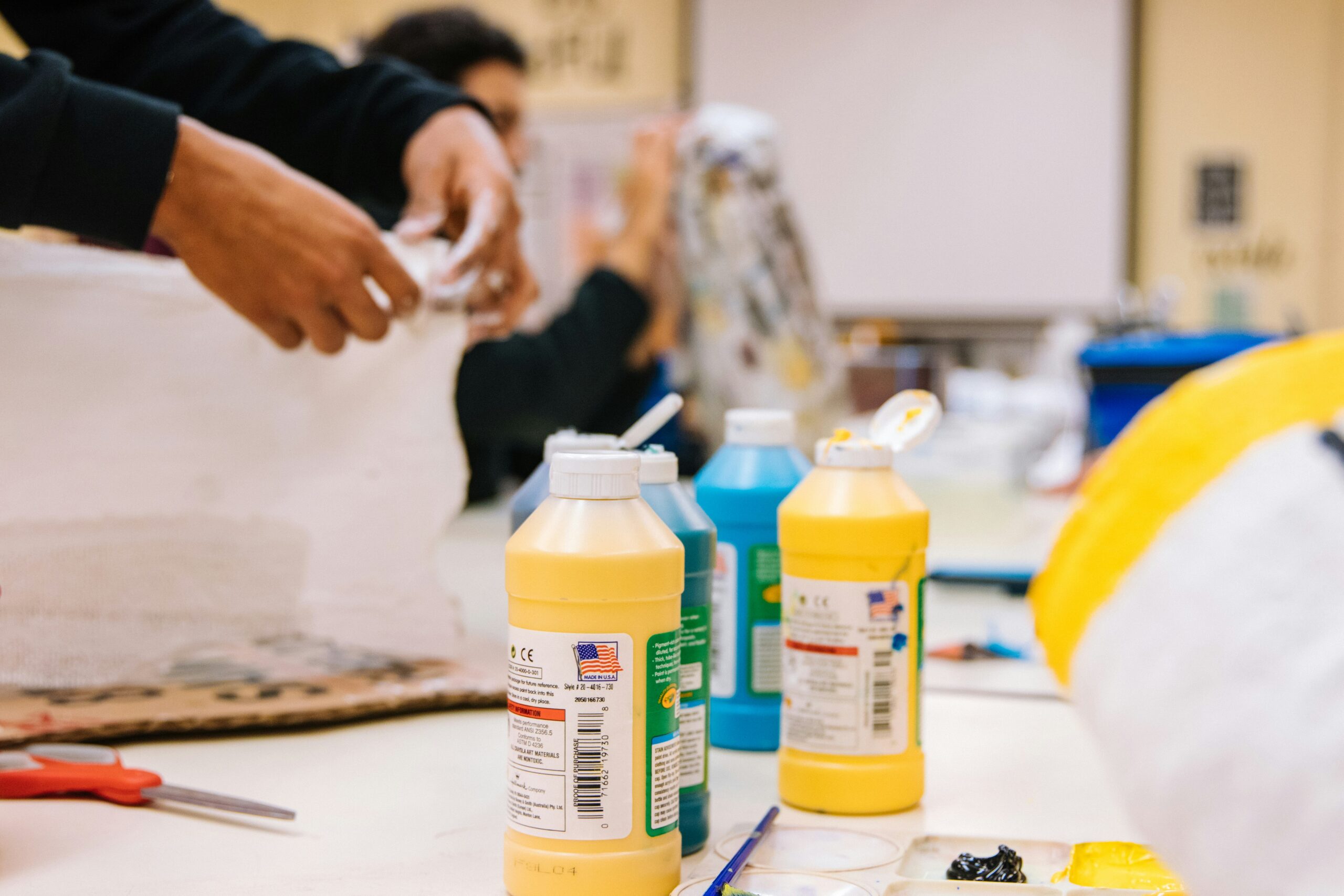How Can You Improve Your Language Learning Skills?
Learning a new language can be a challenging and rewarding experience. In order to effectively retain and recall the language in everyday conversation, it’s essential to utilize proven language learning techniques. In this article, we will explore some of the most common methods that can help you improve your language skills and ultimately become more confident in your ability to communicate with others.
Set Clear Goals for Language Learning
Setting clear and achievable goals is crucial when learning a new language. Whether you want to become conversational in a foreign language or simply improve your vocabulary, having a goal in mind will help you stay motivated and focused on your language learning journey. Start by identifying what you hope to achieve and create a plan to reach your goals.
Practice Regularly
Consistent practice is key to improving your language skills. Make an effort to practice speaking, listening, reading, and writing in the language you are learning on a daily basis. This can be done through language exchange with native speakers, watching foreign films or TV shows, reading books or articles in the language, or writing in a language journal. The more you practice, the more confident you will become in using the language in everyday conversation.
Use Mnemonic Devices
Mnemonic devices are memory aids that can help you retain new vocabulary and grammar rules more effectively. One common mnemonic technique is creating associations between new words and images, sounds, or other familiar words in your native language. For example, you can associate the Spanish word “zapato” (shoe) with the English word “zap” to help you remember its meaning. By using mnemonic devices, you can make the language learning process more fun and engaging.

The Importance of Immersing Yourself in the Language
Immersing yourself in the language you are learning is one of the most effective ways to improve your language skills. By surrounding yourself with the language in everyday life, you can accelerate your learning process and develop a more natural speaking and listening ability.
Watch Foreign Films and TV Shows
Watching foreign films and TV shows in the language you are learning can help you improve your listening skills and familiarize yourself with the nuances of the language. Pay attention to how native speakers pronounce words, express emotions, and engage in conversations. You can also turn on subtitles in the language to better understand the dialogue and context.
Listen to Music and Podcasts
Listening to music and podcasts in the language you are learning is another great way to immerse yourself in the language. Pay attention to the lyrics of songs or the dialogue in podcasts to expand your vocabulary, improve your pronunciation, and get a sense of the culture associated with the language. You can also sing along to songs or repeat phrases from podcasts to practice your speaking skills.
Read Books and Articles
Reading books and articles in the language you are learning can help you improve your reading comprehension and expand your vocabulary. Start with simple texts and gradually work your way up to more complex material as you become more comfortable with the language. Make note of new words and phrases, and try to incorporate them into your daily conversations to reinforce your learning.
Leveraging Technology for Language Learning
In today’s digital age, there are a variety of technological tools and resources available to assist you in your language learning journey. From language learning apps to online courses, technology can help you study more efficiently and effectively.
Language Learning Apps
Language learning apps like Duolingo, Babbel, and Rosetta Stone offer interactive lessons, quizzes, and games to help you practice your language skills on the go. These apps provide instant feedback on your performance and allow you to track your progress over time. By using language learning apps regularly, you can reinforce your learning and stay motivated to achieve your language learning goals.
Online Language Courses
Online language courses are another convenient way to improve your language skills from the comfort of your own home. Websites like Coursera, Udemy, and FluentU offer a wide range of language courses taught by experienced instructors. These courses typically include video lectures, assignments, and quizzes to help you learn grammar, vocabulary, and pronunciation in a structured manner. Consider enrolling in an online language course to supplement your self-study efforts and receive personalized feedback on your language skills.
Language Exchange Platforms
Language exchange platforms like Tandem, HelloTalk, and ConversationExchange allow you to connect with native speakers around the world for language practice. Through these platforms, you can engage in language exchange sessions via text, voice, or video chat to improve your speaking and listening skills. By interacting with native speakers, you can learn about the culture, customs, and idioms associated with the language while receiving real-time feedback on your language proficiency.
Creating a Supportive Language Learning Environment
Building a supportive language learning environment can greatly enhance your language learning experience and help you achieve your language learning goals more effectively. Surrounding yourself with like-minded individuals who share your passion for language learning can provide motivation, accountability, and encouragement along the way.
Join Language Learning Communities
Joining language learning communities both online and offline can help you connect with other language learners and native speakers who can offer guidance and support. Websites like Reddit, Facebook groups, and language learning forums provide a platform to ask questions, share resources, and engage in language-related discussions with fellow learners. Additionally, consider joining language meetups, conversation clubs, or language exchange events in your local area to practice your language skills in a social setting.
Set Up Language Learning Challenges
Setting up language learning challenges can help you stay motivated and focused on your language learning goals. Challenge yourself to learn a certain number of new words each week, complete a language exercise every day, or engage in a conversation with a native speaker within a specific timeframe. By setting up challenges and tracking your progress, you can measure your improvement and celebrate your achievements along the way.
Create a Language Learning Routine
Establishing a language learning routine can help you stay consistent and dedicated to your language learning practice. Set aside dedicated time each day to study and practice the language in a quiet and distraction-free environment. Whether you prefer to study in the mornings, afternoons, or evenings, find a time that works best for you and stick to your language learning routine. Consistency is key to making progress and achieving your language learning goals.
Embracing Mistakes as Opportunities for Growth
Making mistakes is a natural part of the language learning process and should be embraced as opportunities for growth and improvement. Instead of being afraid of making mistakes, view them as valuable learning experiences that can help you identify areas for improvement and refine your language skills over time.
Learn from Your Mistakes
When you make a mistake while speaking, writing, or listening in the language you are learning, take note of the error and try to understand why it occurred. Consider the grammar rule, vocabulary word, or pronunciation sound that caused the mistake and make a mental note to review and practice that particular aspect of the language. By learning from your mistakes, you can avoid repeating them in the future and become more proficient in the language.
Ask for Feedback
Seeking feedback from native speakers, language teachers, or language exchange partners can provide valuable insights into your language learning progress and areas for improvement. Ask for constructive criticism, suggestions for improvement, or clarification on specific language points that you find challenging. By receiving feedback from others, you can gain a fresh perspective on your language skills and identify areas where you can focus your efforts to enhance your language proficiency.
Practice Self-Reflection
Engaging in self-reflection on your language learning journey can help you gain a deeper understanding of your strengths, weaknesses, and learning preferences. Consider keeping a language journal to track your progress, set goals, and reflect on your language learning experiences. Write about your successes, challenges, and insights related to language learning, and use this information to adjust your study habits, practice methods, and language learning goals moving forward.

Conclusion
In conclusion, utilizing proven language learning techniques can help you improve your retention and recall of a foreign language in everyday conversation. By setting clear goals, practicing regularly, immersing yourself in the language, leveraging technology, creating a supportive learning environment, and embracing mistakes, you can enhance your language learning experience and become more confident in your ability to communicate with others. Remember that language learning is a journey, and every step you take brings you closer to achieving fluency and proficiency in the language you are learning. Keep practicing, stay motivated, and enjoy the process of learning a new language!

